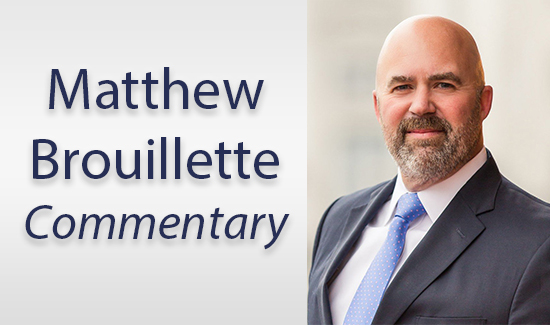Primary Analysis: Trump Lost, Dems Have Identity Crisis, GOP has a Messaging Crisis

On May 16, Pennsylvanians voted in statewide and local primary elections as well as a much-watched special House election.
Beyond revealing the winners, the vote tallies show that former President Donald Trump lost (again), Democrats have an identity crisis, and Republicans have a messaging crisis.
While the former president wasn’t on any ballot, in multiple Republican primary races Trump-and-Doug-Mastriano-aligned candidates lost to solid conservatives who actually have a chance of winning in November. (For those who may have already forgotten, Mastriano was the Trump-endorsed candidate for Pennsylvania governor in 2022.)
In the Republican primary for Pennsylvania Supreme Court, respected Montgomery County Common Pleas Judge Carolyn Carluccio handily defeated Commonwealth Court Judge Patricia McCullough.
McCullough is a Trump-aligned judge who tried to stop certification of the 2020 presidential election in Pennsylvania. She boasted of the praise she’d won from Trump, and, more recently, she spoke at a Mastriano-hosted rally.
I’ve previously written that if Republicans want to start winning elections, they must break from Trump and chart a new course. Judge Carluccio (whom my organization endorsed) is a solid rule-of-law Republican. She heads into the general election unencumbered by the Trump-Mastriano weight that’s sunk GOP aspirations in too many recent elections.
In local races, too, the pro-Trump faction appears to be losing its grip on the party. In Montgomery County, Trump-aligned incumbent Commissioner Joe Gale finished a distant third among three candidates. And across the state, in Washington County, considered a MAGA bastion, Trump-aligned GOP county commissioner candidates also lost their primaries.
While Republicans are beginning to admit that they need to disentangle from Trump, Democrats are facing an identity crisis of their own. It’s a crisis that will determine whether the “establishment” or the “progressive” wing of the Democratic party prevails.
Judging from the results of Philadelphia’s Democratic mayoral primary, it appears that voters are tired of the ongoing destruction of the city under progressive, George Soros-funded District Attorney Larry Krasner.
Despite weekend endorsement appearances by U.S. Sen. Bernie Sanders and U.S. Rep. Alexandria Ocasio-Cortez, fellow progressive and rising star Helen Gym came in third in the Democratic primary for Philadelphia mayor. Gym had previously sided with the radical defund-the-police movement, but in a blow to progressives, voters chose Cherelle Parker, who cast herself as a moderate Democrat. (Compared with the radical far Left, even liberal Democrats look moderate today.)
Across the state, however, in Allegheny County, Democrats’ progressive wing ruled the day. Pittsburgh Democrats embraced a George Soros-funded candidate (Matt Dugan) for district attorney and nominated a progressive state representative (Sara Innamorato) for county executive.
Just as Republicans have to choose whether the future of their party will be Trumpist populism or the core conservative values of free markets and personal responsibility, Democrats must choose between what can only be called far Left and even farther Left policies. Pennsylvania’s primary election results suggest that Democratic voters have not yet made this choice.
The primary also exposed ongoing weaknesses in Republicans’ messaging. This was particularly true in the special election in the 163rd House District in Delaware County, where Democrat Heather Boyd faced Republican Katie Ford in the race that would determine which party controls the House.
Democrats hold a voting advantage in the district, but they took nothing for granted. The Left poured nearly $1 million into the race, while pounding home a coherent message focused on defending the Democratic majority.
Republicans, in contrast, didn’t have the same messaging focus. They missed opportunities to expose Democrats’ extreme policy positions and lay out a vision of how they would tackle the issues most important to voters: inflation and the economy. In the end, they came up short.
If Republicans want to win, they must communicate a coherent, bold vision on issues that matter to voters.
Finally, it’s worth noting that these results reflect the choices of only a small percentage of registered voters who actually went to the polls. Primaries are notorious for low turnout. In Allegheny County, for example, Innamorato’s tally was less than 10% of the county’s registered voters. This underscores that while radical progressives may not be an absolute majority in the party, they can win in low-turnout primary elections.
With all focus now turning to the general election, we’ll have to wait and see how these results will influence how Republicans and Democrats campaign heading into November.
# # #
Matthew J. Brouillette is president and CEO of Commonwealth Partners Chamber of Entrepreneurs, an independent, nonpartisan, 501(c)(6) membership organization dedicated to improving the economic environment and educational opportunities in Pennsylvania.






